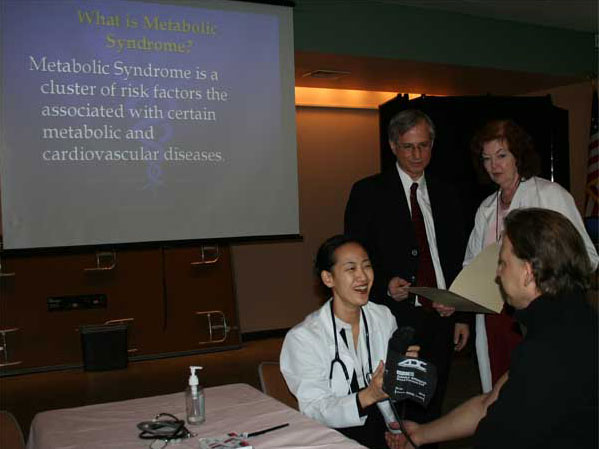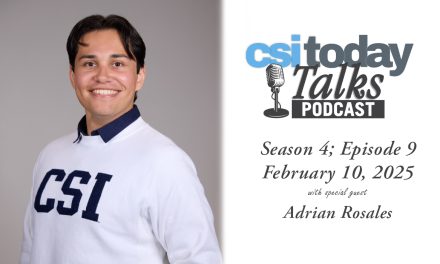Americans are overeating and underexercising, a lifestyle that can lead to a medical condition known as metabolic syndrome. Unfortunately, metabolic syndrome increases a person’s risk of coronary disease and diabetes, and the number of people with this condition is on the rise.
Two academic departments at the College of Staten Island, Nursing and Environmental Science, are currently conducting a study to determine just how prevalent metabolic syndrome is among Staten Islanders, using free clinics held on the College’s campus to examine borough residents to determine if they have the disorder.
The clinics also provide counseling to all of the patients, letting them know what they need to do to avoid metabolic syndrome and its serious consequences. The clinics are made possible through financial support from the Kidney and Urology Foundation and Staten Island-based Bioreference Labs.
The clinics provide dual-edged benefits by giving Staten Islanders a free opportunity to evaluate their health and ways to alter their lifestyle for the better, and CSI graduate students get hands-on research experience, with Nursing students performing aspects of the evaluations, which include measurement of Body Mass Index (abdominal girth, height, and weight), urinary analysis, and blood work. Once the clinics gather the medical information, Environmental Science students will compile the prevalence data.
Mary O’Donnell, chair of CSI’s Nursing department says, “There have been indications that the incidence of metabolic syndrome may be higher here on Staten Island than it is nationwide. I feel that it’s a very important piece of nursing, in terms of education, to help to identify people who are at risk for cardiovascular disease and diabetes. A big function of nursing is to be able to assess people, to be able to teach people the proper lifestyles, to avoid these risk factors and actual diseases. They need to work with these people setting up a plan that will assist them to be successful.”
Patient counseling is being provided by John Pepe, MD, a nephrologist who is based on Staten Island. Dr. Pepe shows patients a PowerPoint presentation that provides information on metabolic syndrome and tells them how to lead healthier lifestyles, and Pepe explains that the earlier people adjust their habits, the better. “Lifestyle change and diet are the only effective ways to treat [metabolic syndrome] and when we deal with adults who already have established morbidity, it’s very difficult to change those things. It just doesn’t work. So, our thought would be to begin at a younger age and make people more aware here and possibly eventually in elementary schools and the like.”
On the research end, Dr. Alfred Levine, Professor of Engineering Science and Physics at CSI, explains the statistical work that will result from these clinics. “The question that we raise in general is under what conditions, which diseases had a higher incidence on Staten Island than national levels and which ones are higher at a statistically significant level. We’ve been doing this with, for example, breast cancer, which is definitely high on Staten Island at a statistically significant level. Lung cancer is definitely high at a statistically significant level. And these are studies that have gone back over the last 20 years. Now what we will do is use the same methodology in examining the data on metabolic syndrome.”

















